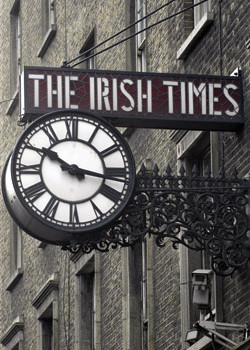Dunnes EDI push irks suppliers

Suppliers dismay at cost and labour incurred by Dunnes Stores new EDI system. The Irish Times suspends its supply to Dunnes outlets
9 March 2009
Large suppliers to Dunnes Stores remain tight-lipped about the implications of the retailer’s adoption of an EDI processor.
Smaller suppliers however express dismay at the purported €2,500 fee, which some claim is a "listing charge" in order to have their products considered by Dunnes.
In a letter addressed "FAO The Managing Director" sent out by Dunnes last December, the company gave suppliers a deadline of 1 March to meet their new 100% EDI (Electronic Data Interchange) and 100% price-matched requirements.
The letter states: "With effect from 1 March 2009, all suppliers must meet our new requirement to send all invoices, credits and despatch advice documents to us electronically. In addition, you will be required to compare your prices with Dunnes prices online on a regular basis in order to ensure a perfect match."
One of the few suppliers in a strong position to resist Dunnes Stores’ recent change of terms is The Irish Times. Having only one product to sell, it is understood that the publisher was somewhat bemused when asked to pay €2,500 to have its product listed on Dunnes’ new EDI website.
The paper announced shorty afterwards that it has suspended its supply to Dunnes Stores outlets. It is also reported that Dunnes cancelled its direct debit payment to The Irish Times and moved to payment by monthly cheque, paying only for copies scanned.
One small supplier said that he felt the requirement was unfair, saying that he has no choice but to comply in order to maintain his business with Dunnes Stores, and describing it as "a win-win situation" for the retailer.
He commented: "They get us to pay to have our products listed; we have to continuously check that the prices match. Presumably there are huge cost savings for them in terms of personnel they would previously have employed in their accounts department. So not alone do Dunnes make a profit out of my products by selling them they now want to make a profit out of just listing them on a web site."
Another supplier told ShelfLife he welcomes the EDI move by Dunnes: "They are the last of the multiples to go down the EDI route so we welcome this move and hope it will see an end to incorrect invoices and mismatched prices, which can seriously hold up payment," he said. However, he also related that with all the retailers using different EDI providers, suppliers have to pay each of them to host the same information, which represents a significant cost burden.
It is universally agreed that properly managed EDI is essential to keeping administrative costs down. Currently, a mismatched price or pricing error results in a "Herculean effort" to resolve the issue, often involving painstaking checks and/or a painful renegotiation.
Frustration
Errors sometimes occur at the retail buying office, suppliers report, if, for example, a price card is not updated following an agreed price change. The cost of the clerical work and subsequent delay in getting paid is borne entirely by the supplier. Said one large supplier in relation to Dunnes Stores: "Whether we screw up or they screw up, we pay up," illustrating the frustration shared by many.
The issue of Dunnes and the current EDI controversy has also lead to calls for the introduction of transparent "Nett Nett" pricing. Currently, there are often as many as five or more elements that need to be taken into account when calculating the true cost price of a product: list; retro; bonus; LTAs; marketing subvention (aisle payments etc). Thus the list price less the four potential additional costs is actually what the retailer is paying.
Some suppliers speaking to ShelfLife also expressed concern that information held by a third party could be used to compare terms between suppliers and different retailers if the retailers chose to share data. Price information is very sensitive and a matter of great secrecy within the trade.
ShelfLife understands that not all suppliers were made aware of the Dunnes EDI move. While most small scale suppliers were aware of the 1 March move it emerged that some large suppliers, who would welcome the introduction of a professional EDI system, had yet to be contacted past the 1 March deadline.



 Print
Print






Fans 0
Followers